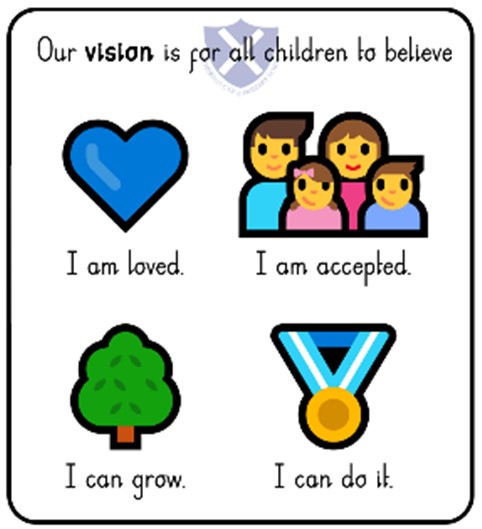Forest School
Intent
At Netherton C of E, we want all children to hold our environment in high regard and to instil a love of the natural world around us. We aspire to create learners who are knowledgeable about the immense variety of life that surrounds us and are skilled in a range of tools and management techniques that protect this biodiversity.
Our vision is for children to believe, ’I am loved’ and ‘I am accepted.’ Our woodlands are a place where all can gather and find tranquillity and rest in nature. Every child, regardless of background or ability will find our woodlands accepting and accessible.
Our vision is for all children to believe, ‘I can grow.’ Our learners are immersed in social activities that build a sense of fellowship and overcome challenges individually and together that build their self-esteem and confidence. We want our children to be problem solvers, team workers, quick thinkers and - most importantly - family. Children are prepared with life skills and an understanding of the natural world that grows as they do.
Our vision is for all children to believe, ‘I can do it.’ Our learners become more knowledgeable as they move through year groups and our progressive curriculum provides opportunity for children to progress through a range of tools and techniques as they hone their skills and mature through key stages.
Implementation
Through our progressive curriculum, children initially develop skills and a sense of awe and wonder in early years. This builds through the use of tools and delivery of knowledge that grows into honing these skills, investigating, and coming to their own conclusions as the children progress into higher years.
Forest school is ‘taught’ weekly, with classes rotating each term. This allows all pupils to get a varied sense of the seasons and creates seasonal variation that is crucial in understanding the biodiversity in our local area and management techniques for our woodland. Our seasonal units of work focus on the knowledge and skills specific to that time of year and are sensitive to our children’s interests as well as the context of the local area. In our forest school we understand that learning is child-led and we encourage our children to take ownership of their time in our woodlands.
Our forest school aims to create a sense of awe and wonder in our pupils, allowing them to see the beauty in nature. We also aim to give learners real life skills such as problem solving and how to work as part of a team or an individual. We aim to develop a range of abilities, allowing our children to self-regulate and resolve independently.
The teaching of forest school is monitored through reflections of our children themselves, regular assessment of our woodland, staff feedback and pupil voice.
Impact
Our greatest impact is measured through our children’s direct interaction with our woodland. Our woodland is largely managed by our children and the developing biodiversity of our site speaks of our children’s acquisition of key skills and understanding. This is monitored through regular ecological surveys, supported by our learners. We also aim to have skilled and social learners who, by the end of year 5:
- Can use a multitude of tools; giving their name, uses and safety measures.
- Can identify and classify much of the biodiversity in our area.
- Can use practical skills to think critically, solve problems and work as part of a team.
- Are able to effectively communicate with each other and can work to resolve their own difficulties.
We aim for our children to talk enthusiastically about their learning and are eager to further their education as they grow. We want our learners to have a love for our natural world.
Characteristics of a Forest Schooler
- Competence and safety in practical tool work.
- Respect and understanding of our natural environment.
- An understanding of the natural processes around them.
- The ability to communicate and work as part of a team.
- The ability to problem-solve and think creatively.
- Love of the outdoors
Potential Careers
- Ranger
- Ecologist
- Conservation worker
- Forestry worker
- Agricultural or horticultural worker
- Tree surgeon
- Zoologist
Road Map

